How should I advance the time of feeling of guilt about not working out before I leave home, rather than after coming home from school?
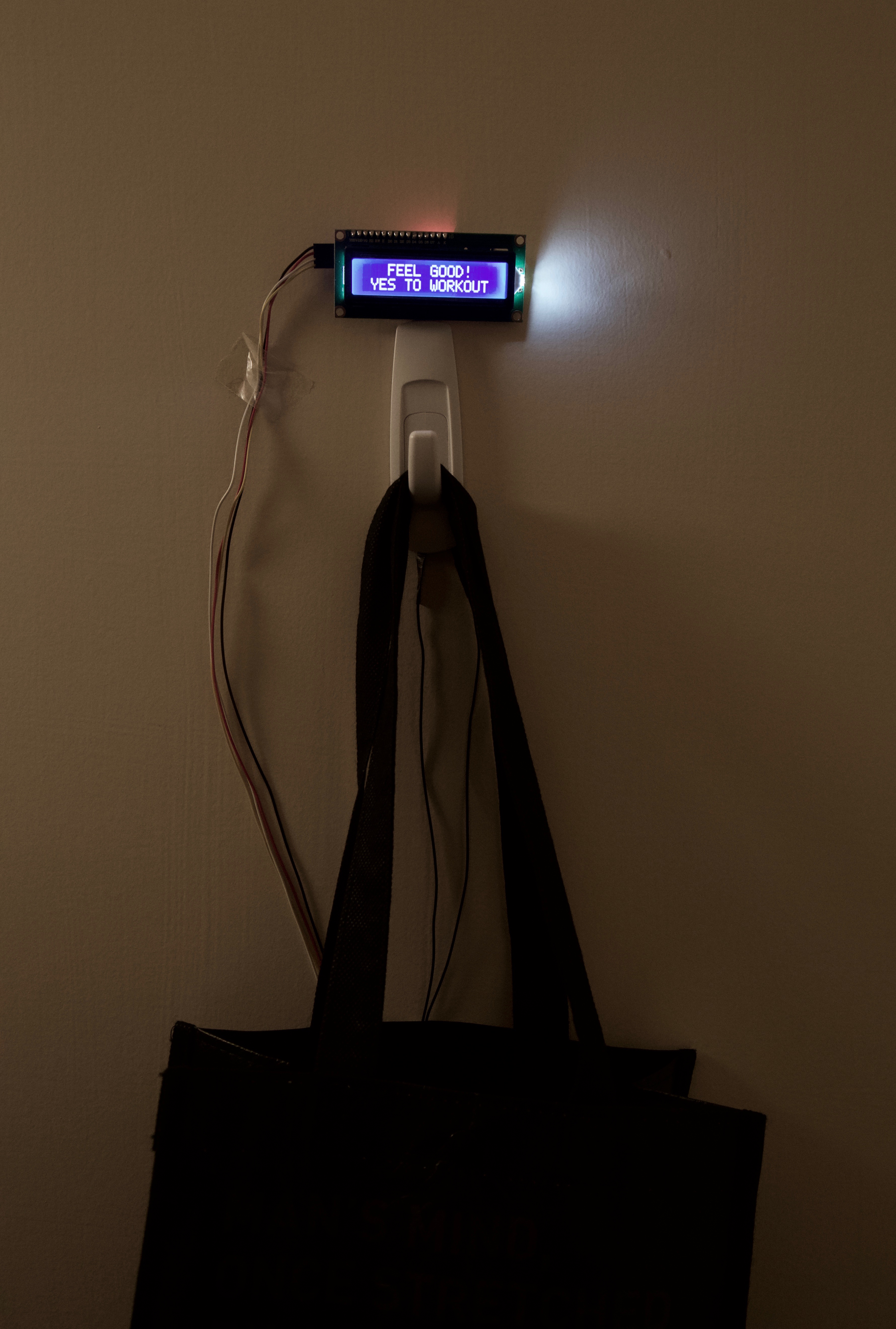
When walking out of my room in the morning, the digital screen reminds me that I will feel good if I pick up my work out bag and get ready to work out during the day in school.
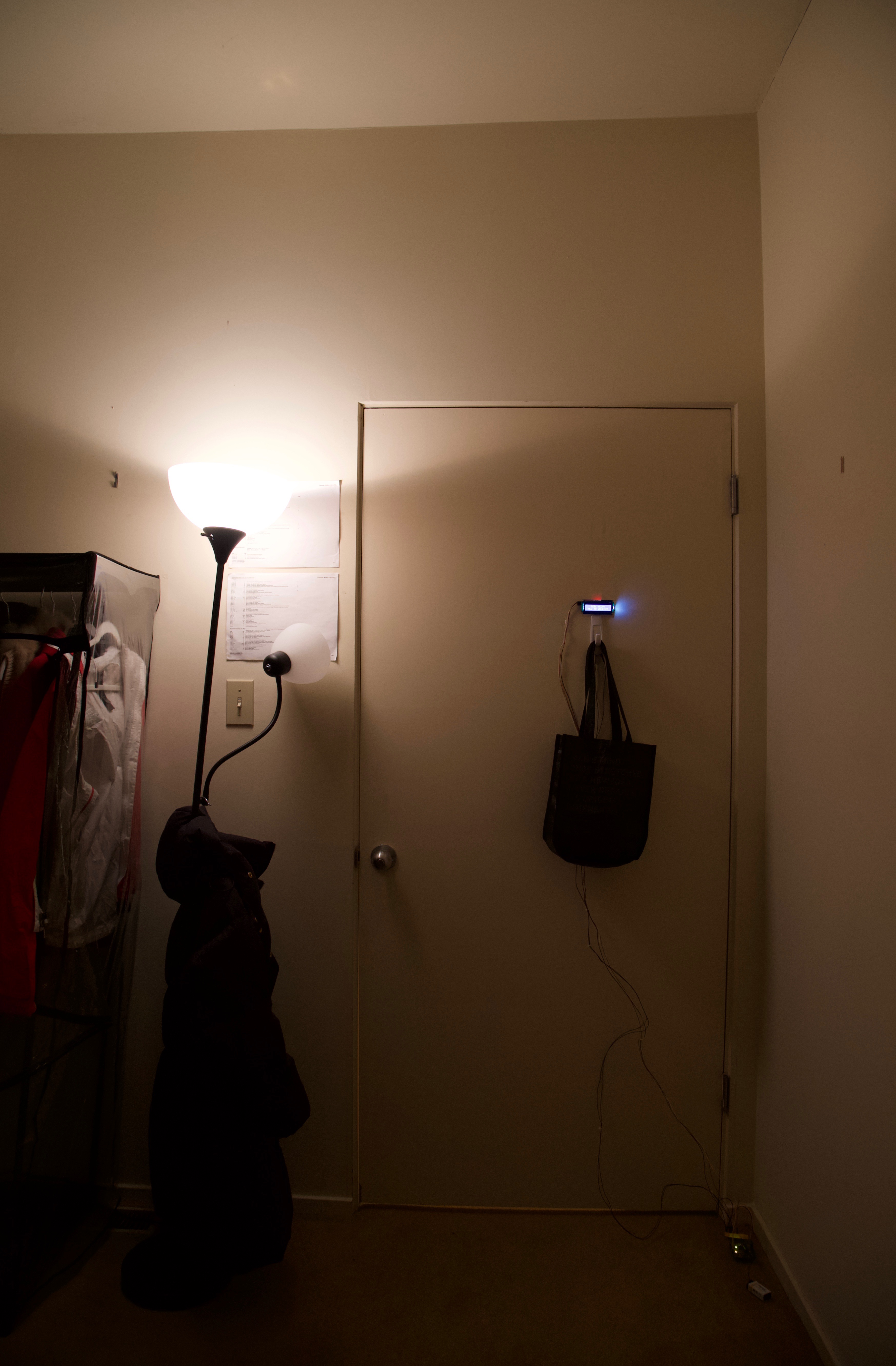
The assistive device is located on my bedroom door wall, so I could easily see it when walking out in the morning.

This is how I attach my code and the LCD display.
PROCESS
One of the difficulties I faced was figuring out the logic of when to order and what to display on the LCD display, measuring and looking at the photocell input data and figuring out the logical thresholds to write the code.
Another difficulty I faced was to figure out how do I display my product in the environment. It was interesting learning how to customize the length and look of wire and solder them together with tools.
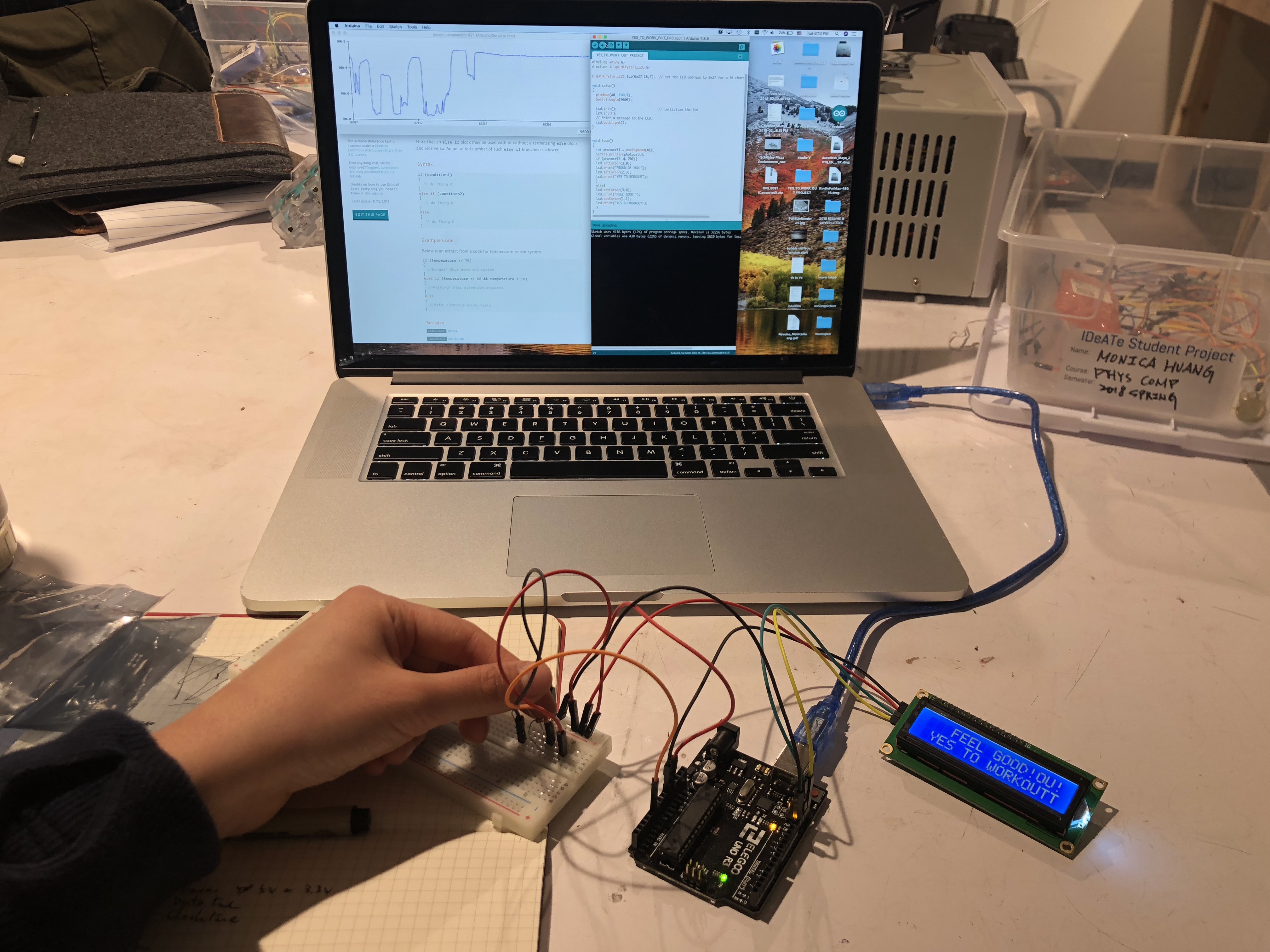

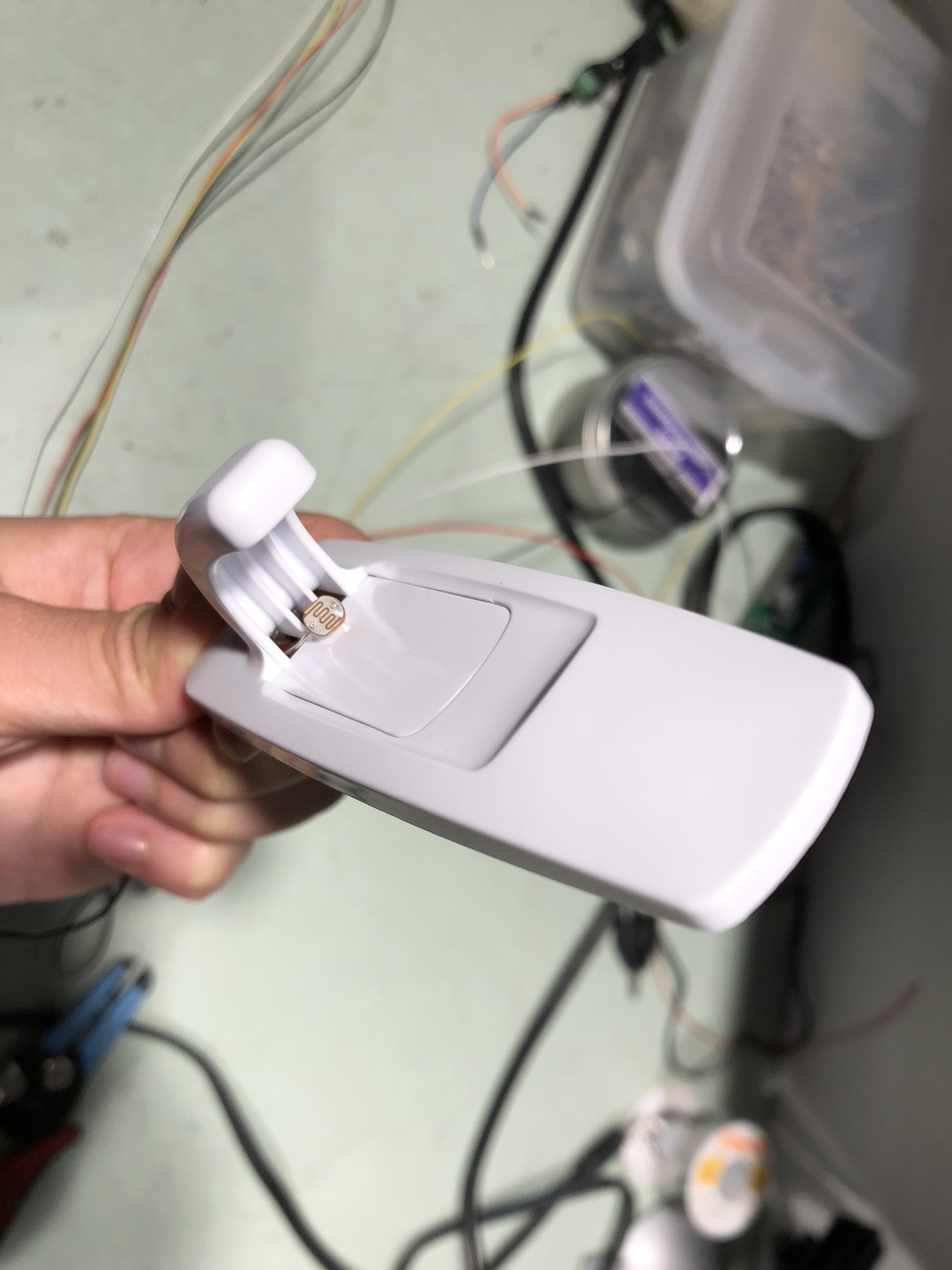

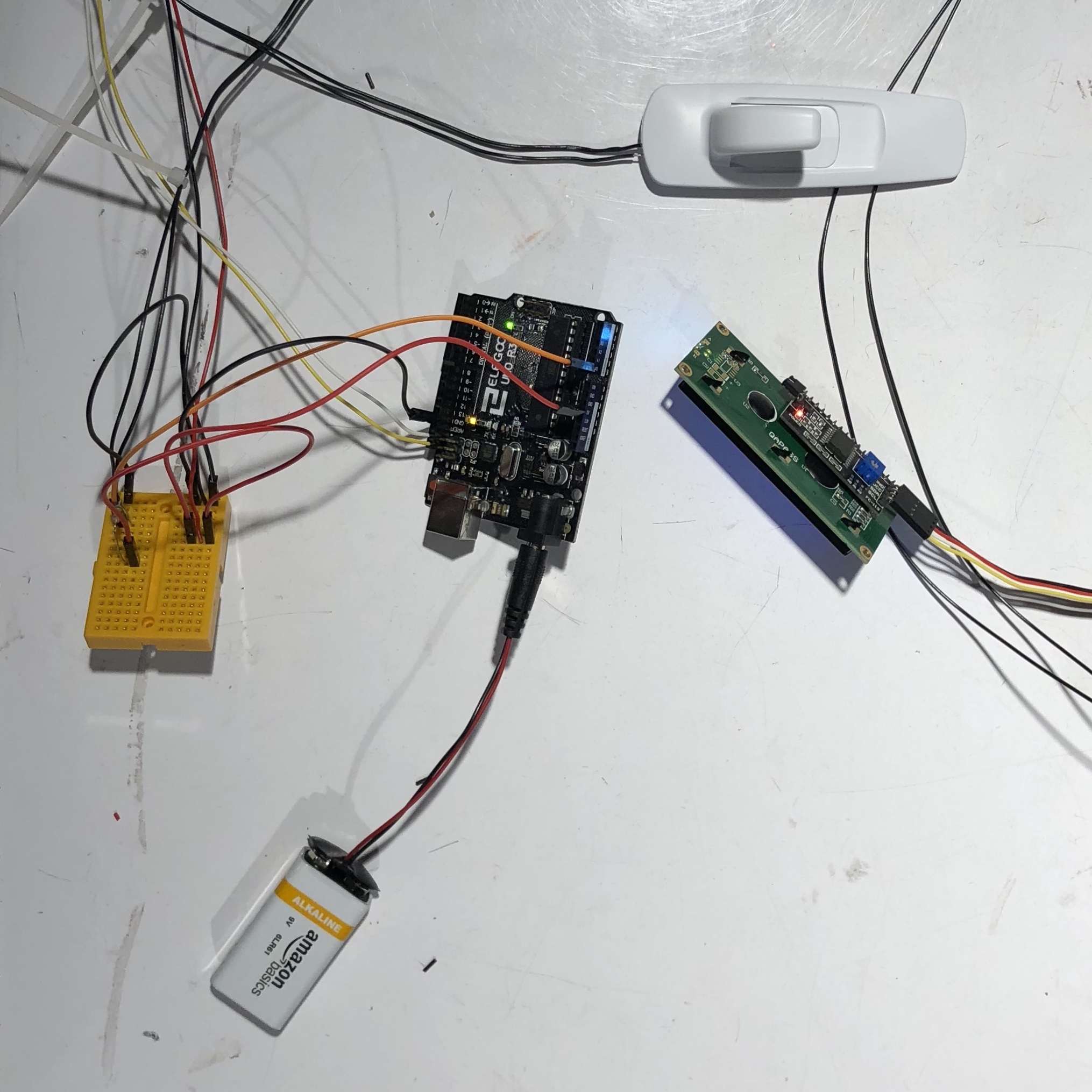
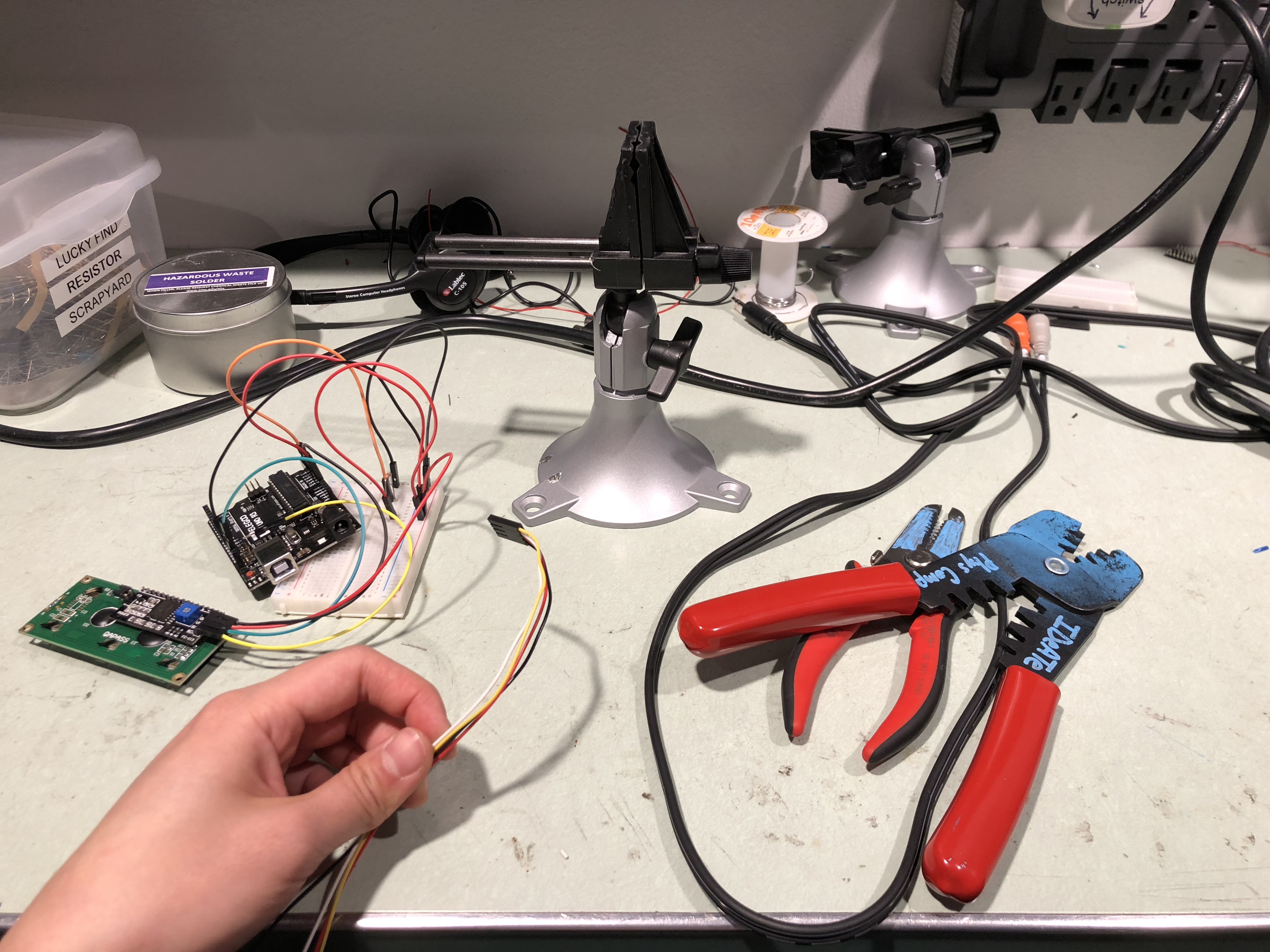
First I tested if the connections and logics work on the breadboard. Then, I position the photocell sensor the hanger for daily practical use, welding the wires to connect.
DISCUSSION
In class critique, I got a question about how can the product be more visible and exaggerated to user, so user would not ignore The Guilt Hook. Another critique I got was the wording of the reminder can be clearer and possible evoke more guilt from the user. Both critique are important points that I will consider when working forward on the product. Adding on, I will also work making The Guilt Hook looks less like a prototype, having a package around the LCD Display and organizing the wires with braiding technique to stabilize them. I will also figure out how to stabilize connection between Arduino code and the Arduino, without pressing reset bottom frequently.
It is surprising to see how powerful Arduino is and how much it could do to possible have an positive impact on one’s daily routine. I find myself having the desire to implant this product in my room and actually use it.
The logic of connection between breadboard wiring, Arduino code, and Arduino plugin is rusty to me. Through this Assistive Device project, I definitely understand more about the logic behind it. Constantly practice thinking through the process would help me improve
Moving forward, I am interested in building more complicated wiring and using more elements to do larger task with Arduino. Now, I have a better pace of how to start and finish creating product with Arduino. I would spend more time brainstorming possible useful products and choose the strongest and most interesting one. I would think about the possible tools that can be used and figure out the logics. Then, I would start building it. Finally, I would have rest of my time refine the look and use of it.
SCHEMATIC

ARDUINO CODE
code language="C"
#include <Wire.h>
#include <LiquidCrystal_I2C.h>
LiquidCrystal_I2C lcd(0x27,16,2); // set the LCD address to 0x27 for a 16 chars and 2 line display
void setup()
{
pinMode(A0, INPUT);
Serial.begin(9600);
lcd.init(); // initialize the lcd
lcd.init();
// Print a message to the LCD.
lcd.backlight();
}
void loop()
{
int photocell = analogRead(A0);
Serial.println(photocell);
if (photocell >= 400){
lcd.clear();
lcd.setCursor(3,0);
lcd.print("FEEL GOOD!");
lcd.setCursor(1,1);
lcd.print("YES TO WORKOUT");
}
else{
lcd.clear();
lcd.setCursor(3,0);
lcd.print("PROUD OF YOU!");
lcd.setCursor(1,1);
lcd.print("YES TO WORKOUT");
}
delay(200);
}
[/code]
SaveSave
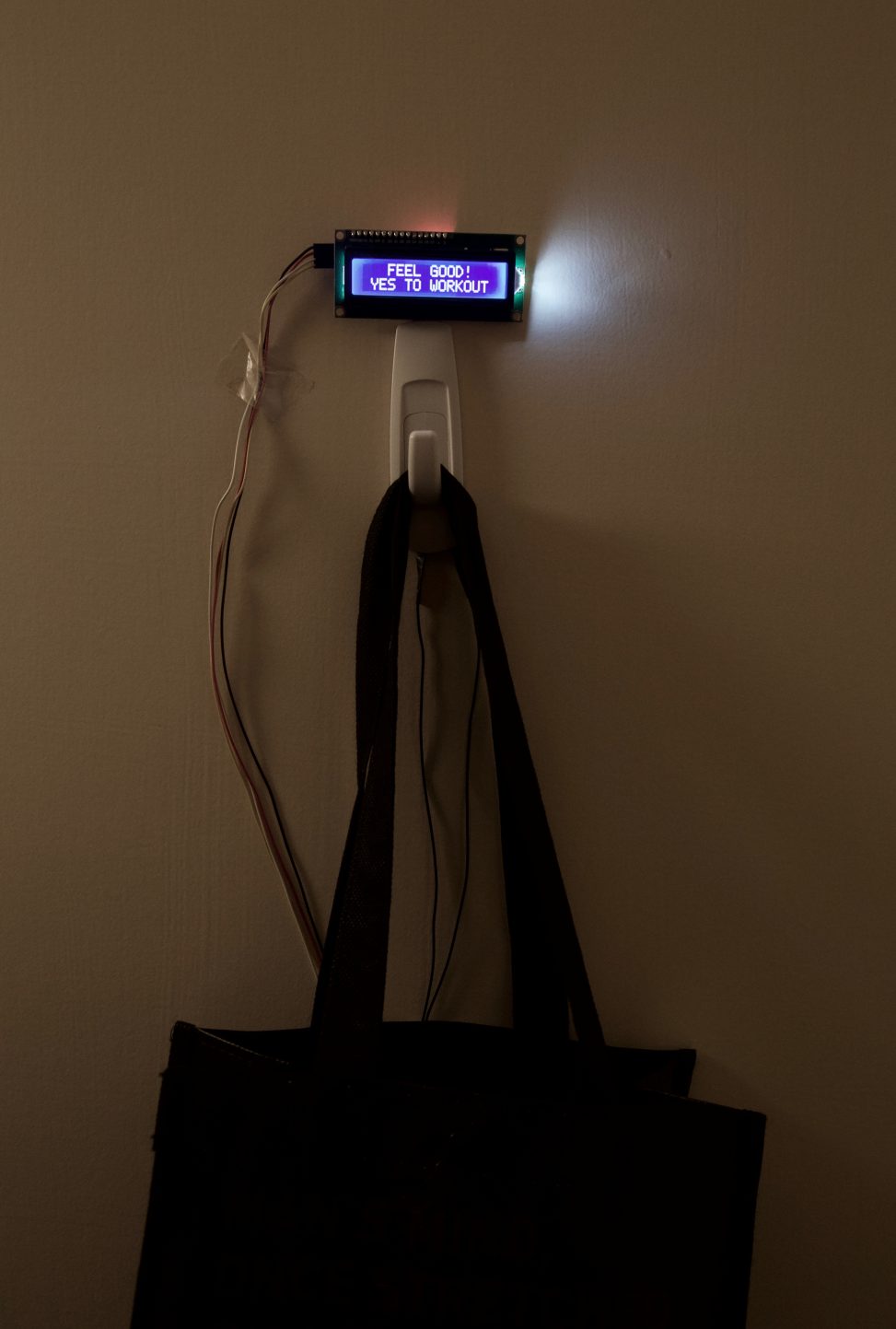
Leave a Reply
You must be logged in to post a comment.